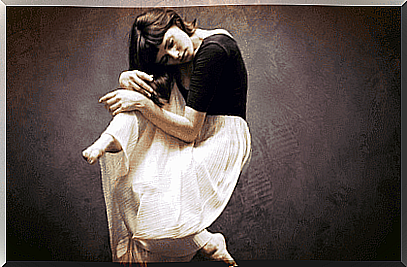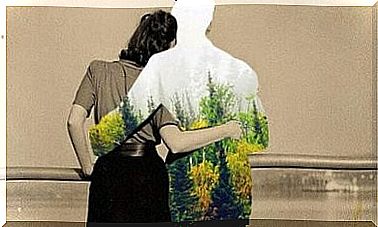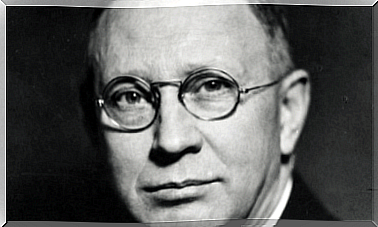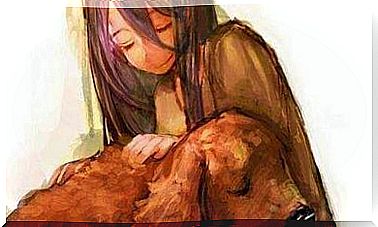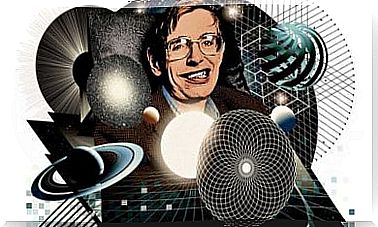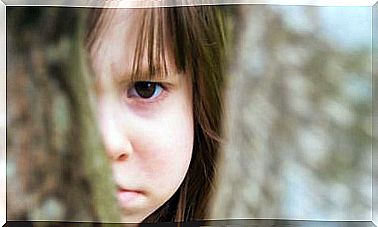Physical Symptoms Of Depression: When Your Body Talks
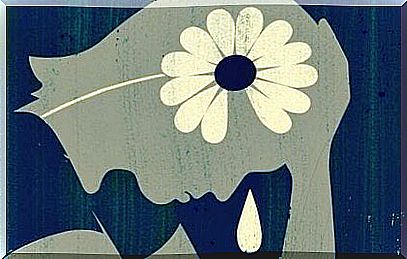
Mental pain exists. It is she who is really responsible for a large number of physical illnesses. However, it is easier for us to say that we have a pain in our back, head or stomach than to cry out such a dramatic thing as “life is hurting me”. Because yes, our reality can often be extremely painful. And this is the case when one suffers from depression.
Failures, losses, disappointments, not knowing what to do or how to react to something… All of this brings us suffering. It is common to experience deep emotional anguish without form or concrete origin. A persistent discomfort that we do not know how to explain. Depression, as we see, has a thousand and one forms. No two are alike.
The extremely tiring combination of anxiety and depression is very common. Patients report feeling both scared and tired. They want to be alone but are afraid of loneliness, want to escape but feel paralyzed.
Living with depression or any other disorder is not easy for anyone. However, it is necessary to study the anatomy of this disorder to better understand what we are facing.
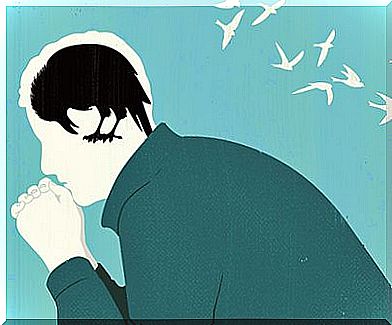
Physical symptoms of depression (a sore body)
Depression hurts. We could define it in many ways: a paralyzing state, negative and even harmful thoughts, anguish, fear, sadness, apathy, demotivation… However, it is rare to hear this definition which tells us that depression means above all to have physical pain. Because physical suffering, in addition to emotional suffering, is very real.
Studies like the one conducted at the Texas University of Medicine in 2004 give us this same information: physical symptoms are common in depression and, in fact, all of this symptom can be seen through pain or organ damage.
The doctor Madhukar H. Trivedi, responsible for this work, reveals to us that a large part of the patients will consult for headaches, pains in the back, problems of sleep or digestion, without knowing that all these experiences are physical symptoms of depression. Now let’s see what are the most common symptoms.
Fatigue, feeling of heaviness and general pain
Everything is heavy, everything hurts, the body becomes sluggish. We live like in an oppressive spacesuit. This is one of the characteristics that many people with depressive disorder experience.
In addition, as Dr. Steven Targum, director of the Boston Hospital, explains in a study, depressed people do not feel better after restful sleep. Even if they get 12 hours of sleep, they will continue to feel exhausted.
Back pain
If we were to talk about a classic pain associated with depression, it would probably be back pain. This problem even goes beyond that of headaches. If we now wonder about this relationship, we can cite a 2016 Emory University study. Here are its findings:
- There is a link between the inflammatory pathways and the neurological circuits of the brain when faced with a sensation of alarm. Of fear. Or anguish.
- A reaction, a weakening of the immune system and an inflammatory response that is localized mainly in the spine, nerves and vertebrae of the back occurs.
Greater sensitivity to pain
Another physical symptom of depression is our pain threshold. Everything becomes painful. Let it be a touch. A light blow. A change in temperature. Different kinds of clothes, etc. The skin and our receptors are more sensitive. We therefore suffer more.
Digestion problems
With depression, a good number of digestive alterations usually take place:
- Cramps.
- Slow digestion.
- Irritable bowel.
- Stomach ache…
As a work from Harvard University tells us, we cannot forget that there is an intimate relationship between our brain and the digestive system. Factors such as stress, anxiety, fear, anxiety and sadness cause a series of changes that extend from the esophagus to the colon.
Eye problems
This data is curious. Another of the physical symptoms of depression is the perception of contrast. This is a small visual problem. The person has trouble focusing things. She sees them more blurry. And also feels difficulty when it comes to differentiating between white and black.
Studies from Harvard University tell us that when someone is depressed, the world becomes more monochrome. And the blue and gray colors are becoming more abundant. This is a very striking point that many patients complain about.
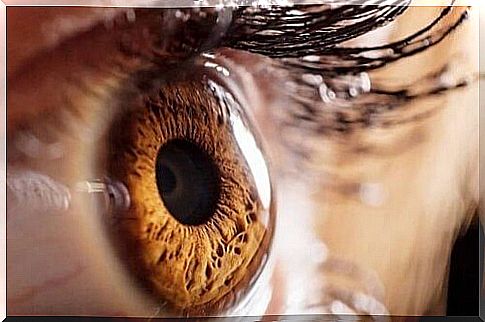
To conclude, as we have seen, the physical symptoms of depression are manifold. Nevertheless, we must remember that this series of peculiarities must be accompanied by emotional and cognitive alterations in order to be able to give rise to the diagnosis of depression.
The typology and the way to deal with it will be studied by a professional. No matter what type of depression we suffer from, all are treatable. By the time there is a small improvement, most of these physical symptoms will go away. When our mind is calm, our body stops screaming and lets itself be led into tune with our emotional well-being.
